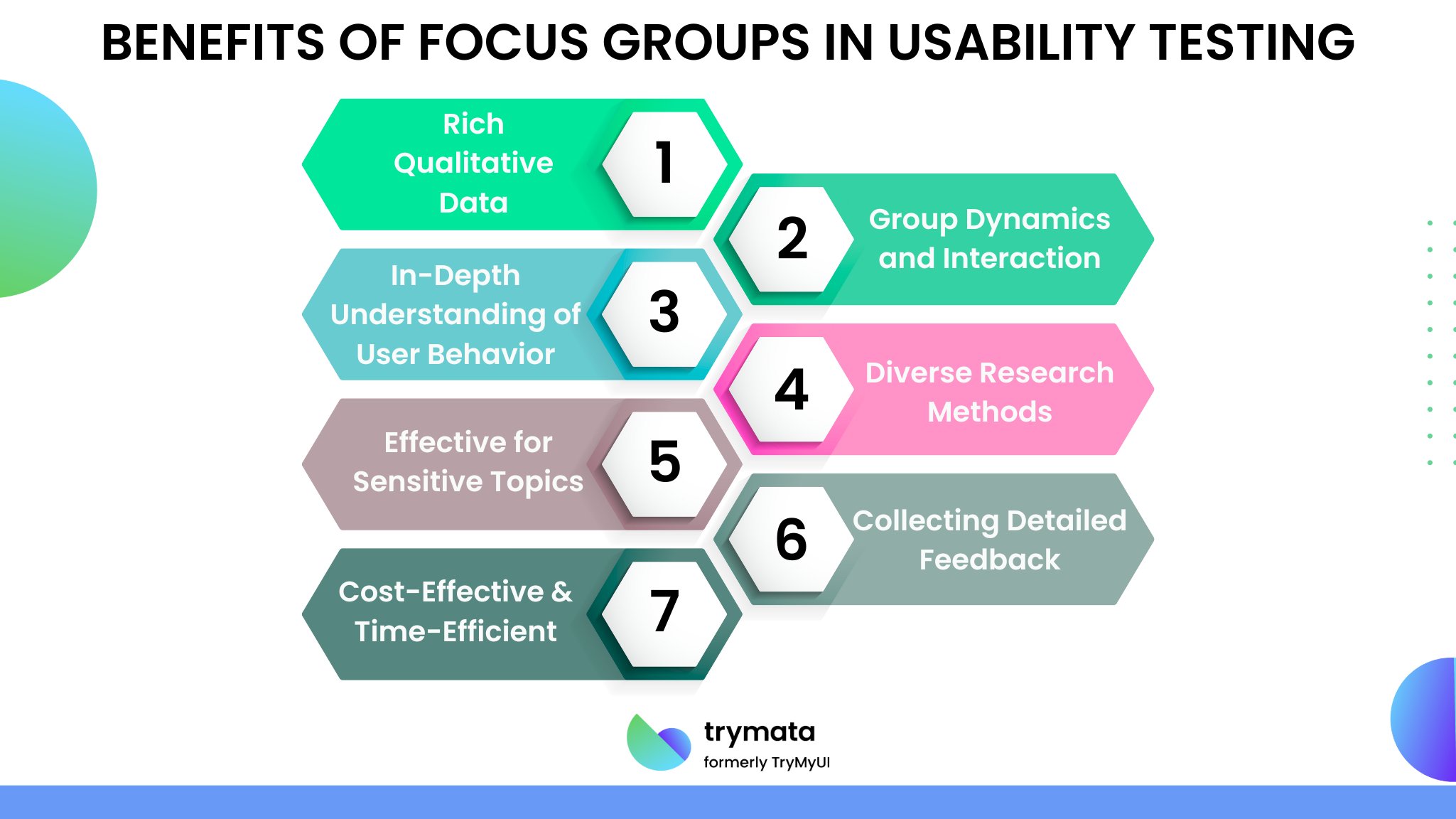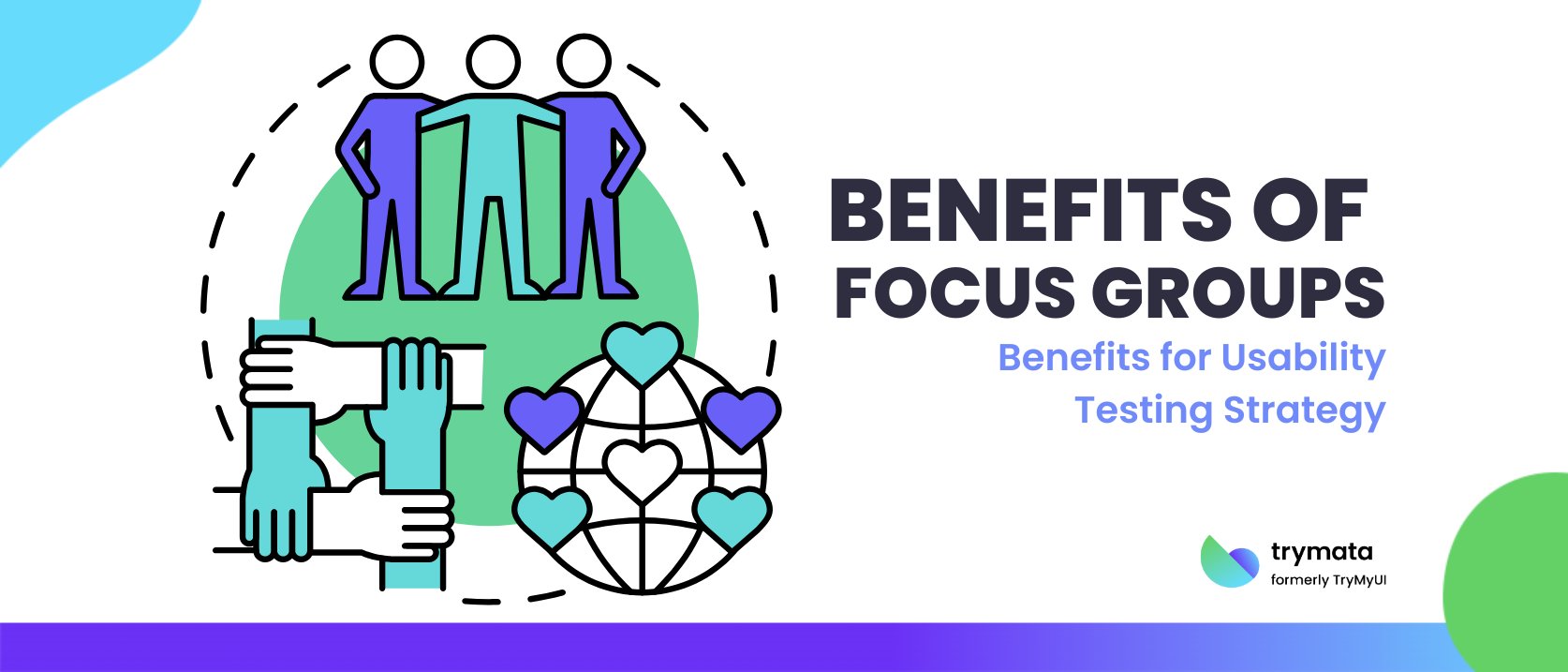The focus group is one of your most powerful tools when usability testing. Whether you’re doing qualitative research or improving a product or service, focus groups give you rich qualitative data and deeper insights into how your target audience perceives your offerings.
In this blog post, we’ll explore the many benefits of focus groups, how they can enhance your market research project, and why they should be part of your research method.
What Are Focus Groups?
A focus group is a small group of people selected to discuss a particular topic or issue under the guidance of a moderator. The format of focus groups is group discussions where people can share their views, experiences,and reactions.
Whether in-person, online, or remote, focus groups give you rich qualitative insights into user behaviour and opinions, making them a popular method for usability testing.
Benefits of Focus Groups in Usability Testing
Focus groups have several key benefits for usability testing. Let’s get into how these discussions can benefit your research.
1. Rich Qualitative Data
Focus groups are great for collecting rich qualitative data and understanding user experiences in detail. Unlike quantitative methods, which give you numbers, qualitative research is about capturing emotions, opinions, and perceptions.
The qualitative nature of focus groups allows researchers to gain deeper insights into user behaviour and motivations.
By looking at body language, non-verbal cues, and group dynamics, researchers can uncover hidden insights that may not be apparent in one-on-one interviews or other market research methods.
2. Group Dynamics and Interaction
One of the best things about focus group discussions is the interaction between group members. The group setting encourages exchanging ideas, with participants bouncing off each other’s opinions.
This group interaction can lead to new perspectives and novel insights that may not emerge in a one-on-one interview. It also allows you to see how participants react to each other’s opinions, which can be particularly useful when researching sensitive topics or consumer behavior.
3. In-Depth Understanding of User Behavior
Focus groups understand how participants feel about a particular product, service, or concept. Whether you’re doing focus group research for a new product design or marketing campaign, these discussions allow you to go deeper into user needs and wants.
The insights from focus group discussions can help you refine your product, address user pain points, and make informed decisions for your next market research project.

4. Diverse Research Methods: Online and Remote Focus Groups
Traditional in-person focus groups have always been a staple in market research, but online and remote focus groups are becoming more popular. These formats allow you to recruit participants from diverse geographical locations, saving on travel costs and expanding the range of perspectives you can collect.
With online focus groups, you can still have interactive discussions and observe group dynamics, but with the added convenience of a virtual setting. This makes focus groups a more cost-effective research method compared to other qualitative methods like in-depth interviews.
5. Effective for Sensitive Topics
Focus groups are great for researching sensitive topics where participants may feel more comfortable discussing issues in a group rather than one-on-one.
The group discussion format creates a sense of anonymity and safety, allowing for honest opinions and reactions. This openness is invaluable when gathering insights about consumer behavior, user preferences, and the challenges your target audience faces.
6. Collecting Detailed Feedback on Specific Research Objectives
Focus groups are great for gathering feedback on specific research objectives. Whether you’re testing a new feature on your website or gauging reactions to an advertising campaign, focus groups allow you to tailor your discussions to get the insights you need.
Focus group research helps you understand participant attitudes, identify potential concerns, and refine your product or service based on direct feedback from your target market.
7. Cost-Effective and Time-Efficient
Compared to one-on-one interviews, focus groups are a cost-effective way to get data from multiple participants at once. You can get insights from a diverse group of people quickly, making them an efficient method for qualitative research.
You can also do mini or dual moderator focus groups to fit your research goals and budget.
Conclusion
Focus groups are a valuable tool for usability testing and market research. Rich qualitative data, group dynamics, and an in-depth understanding of user behavior clearly show how your target audience perceives your products or services.
In-person, online, or remote, focus groups are a cost-effective and time-efficient research method to collect feedback on specific objectives.
Plus, a focus group’s safe and open environment allows for honest discussions on sensitive topics. Focus groups should be in your research toolbox to help you refine your products and make informed decisions.




